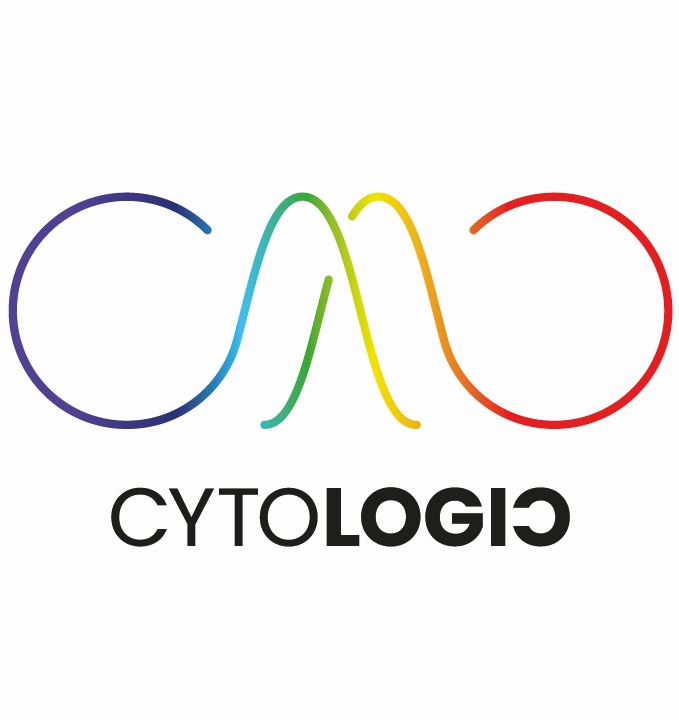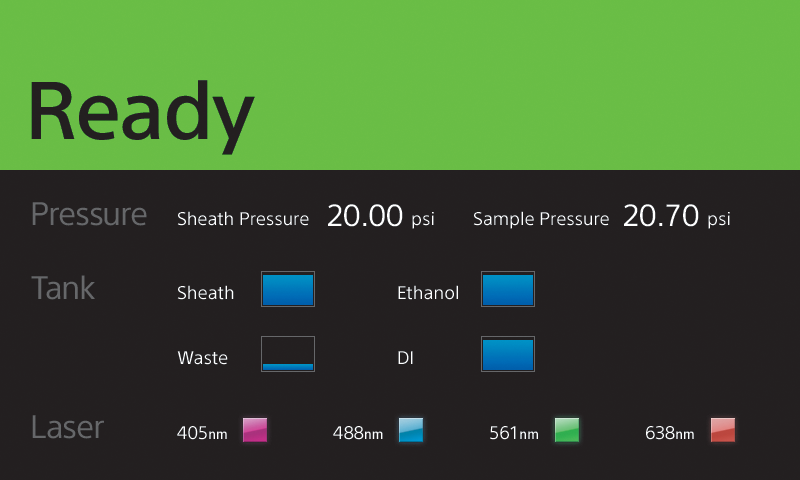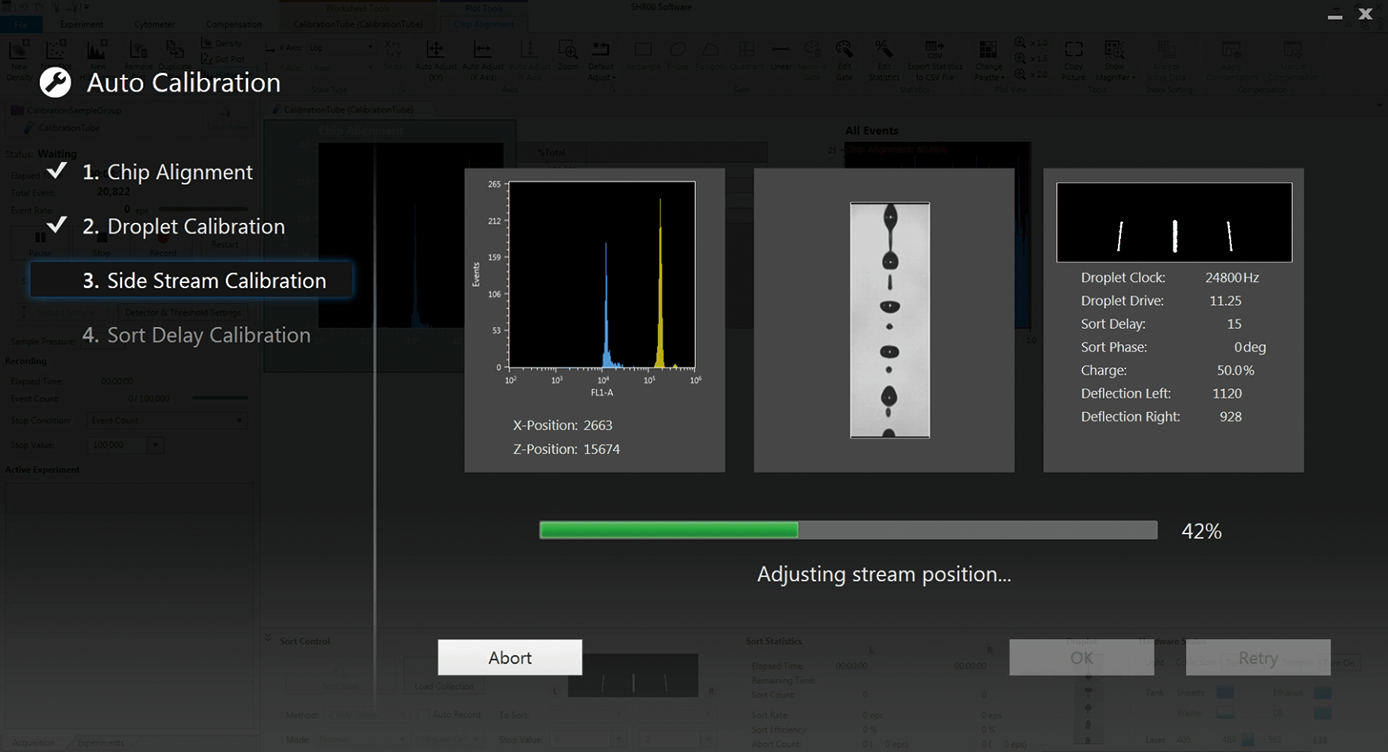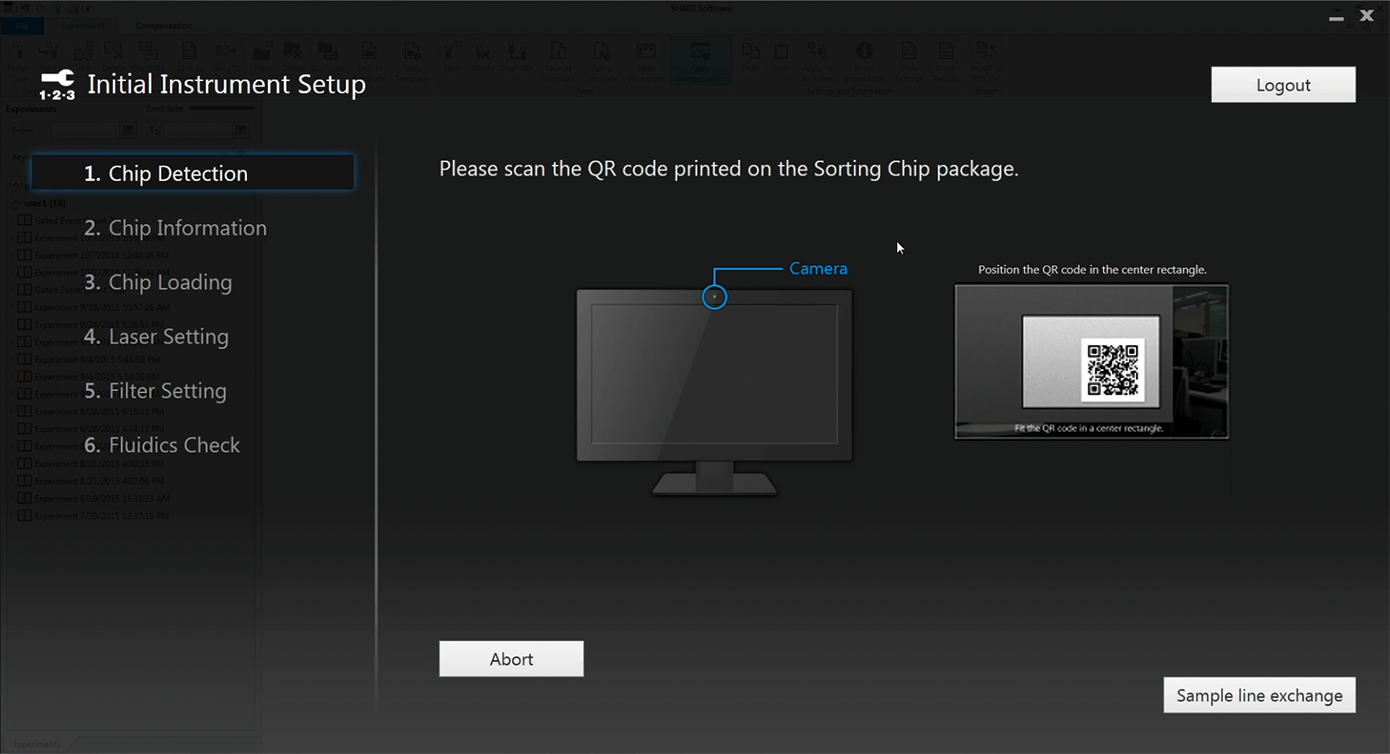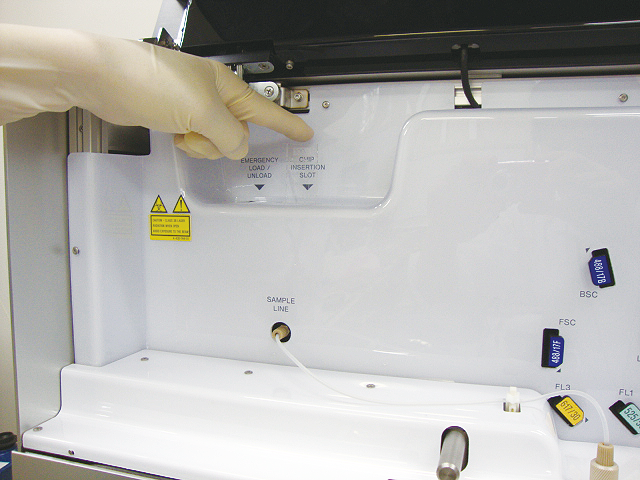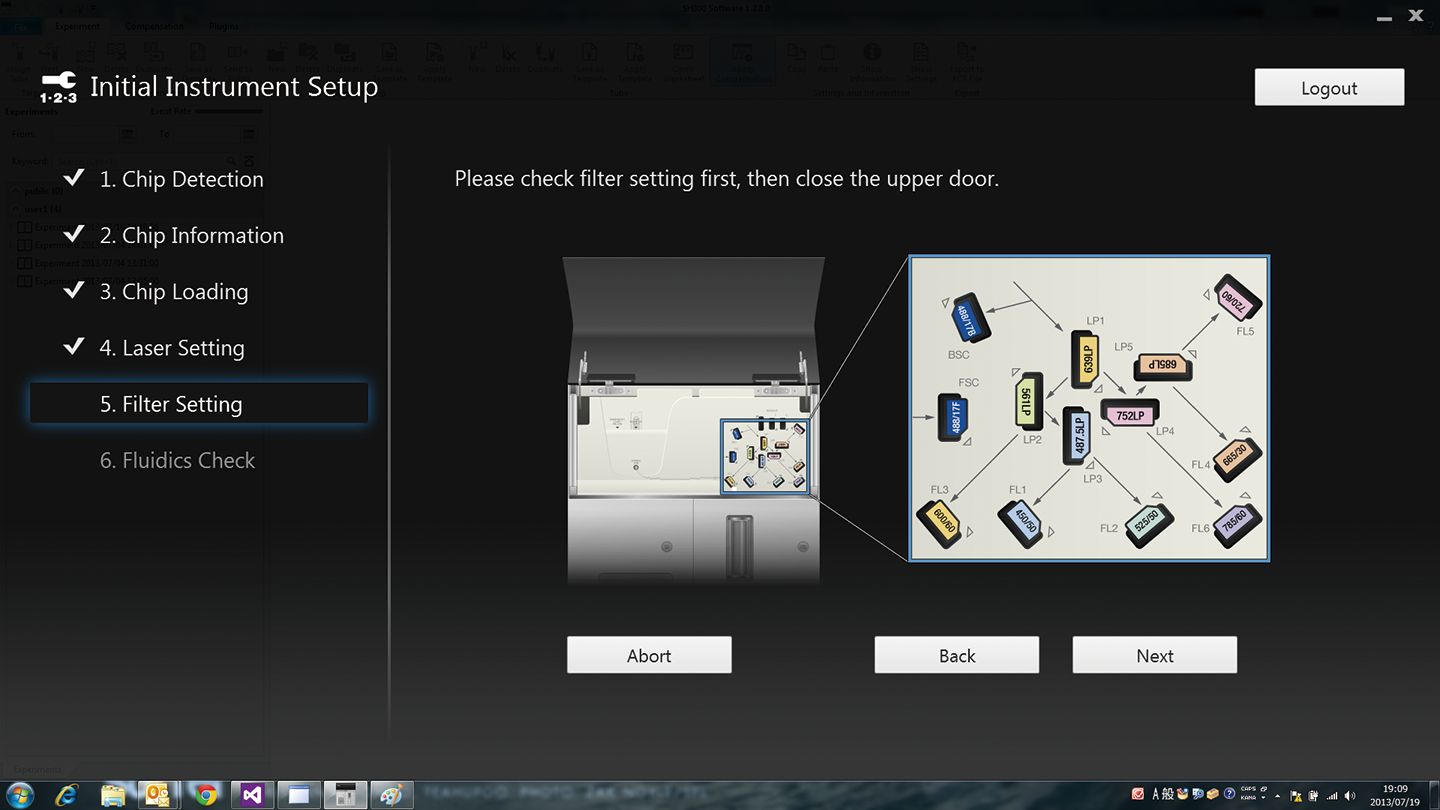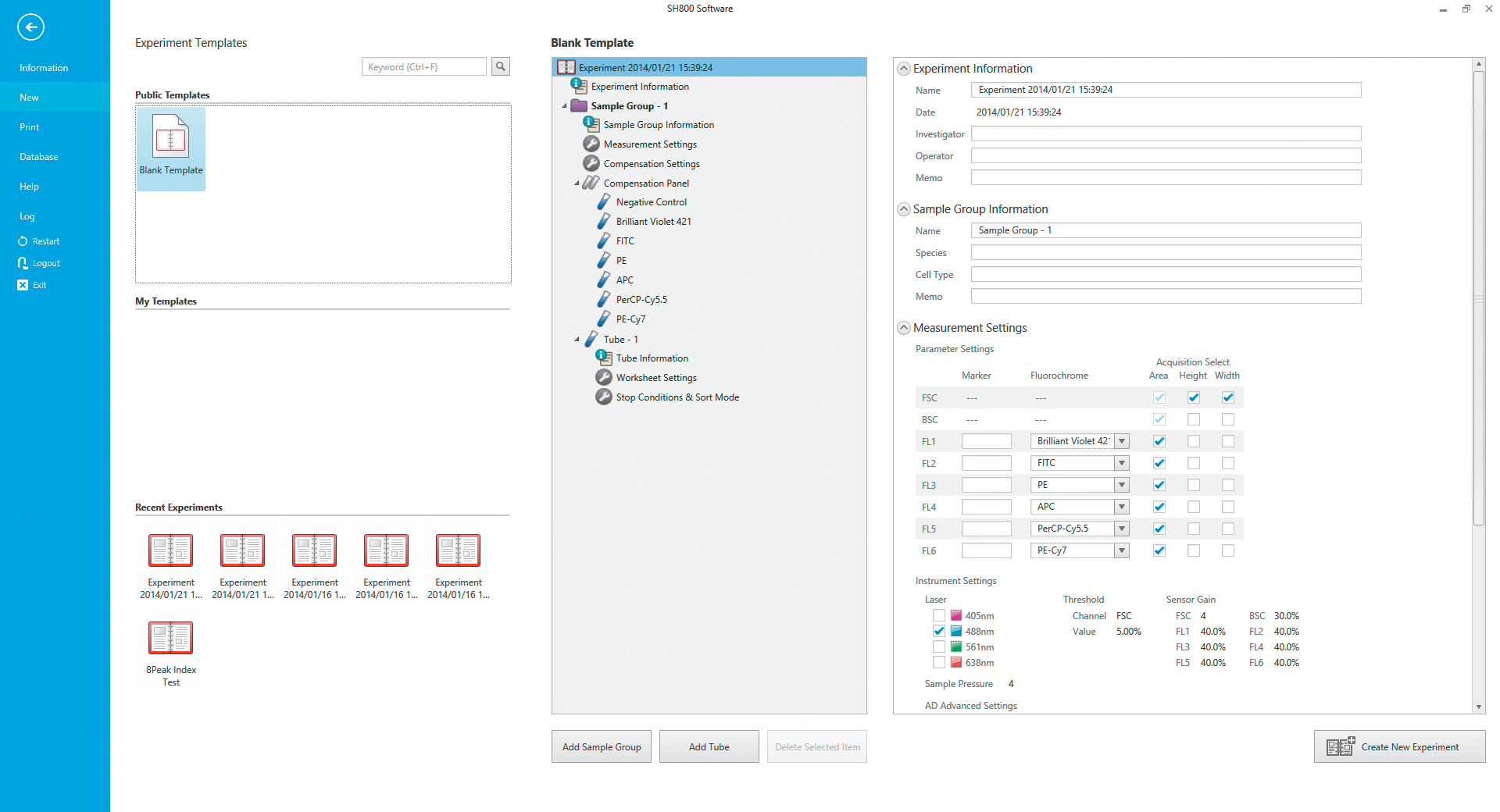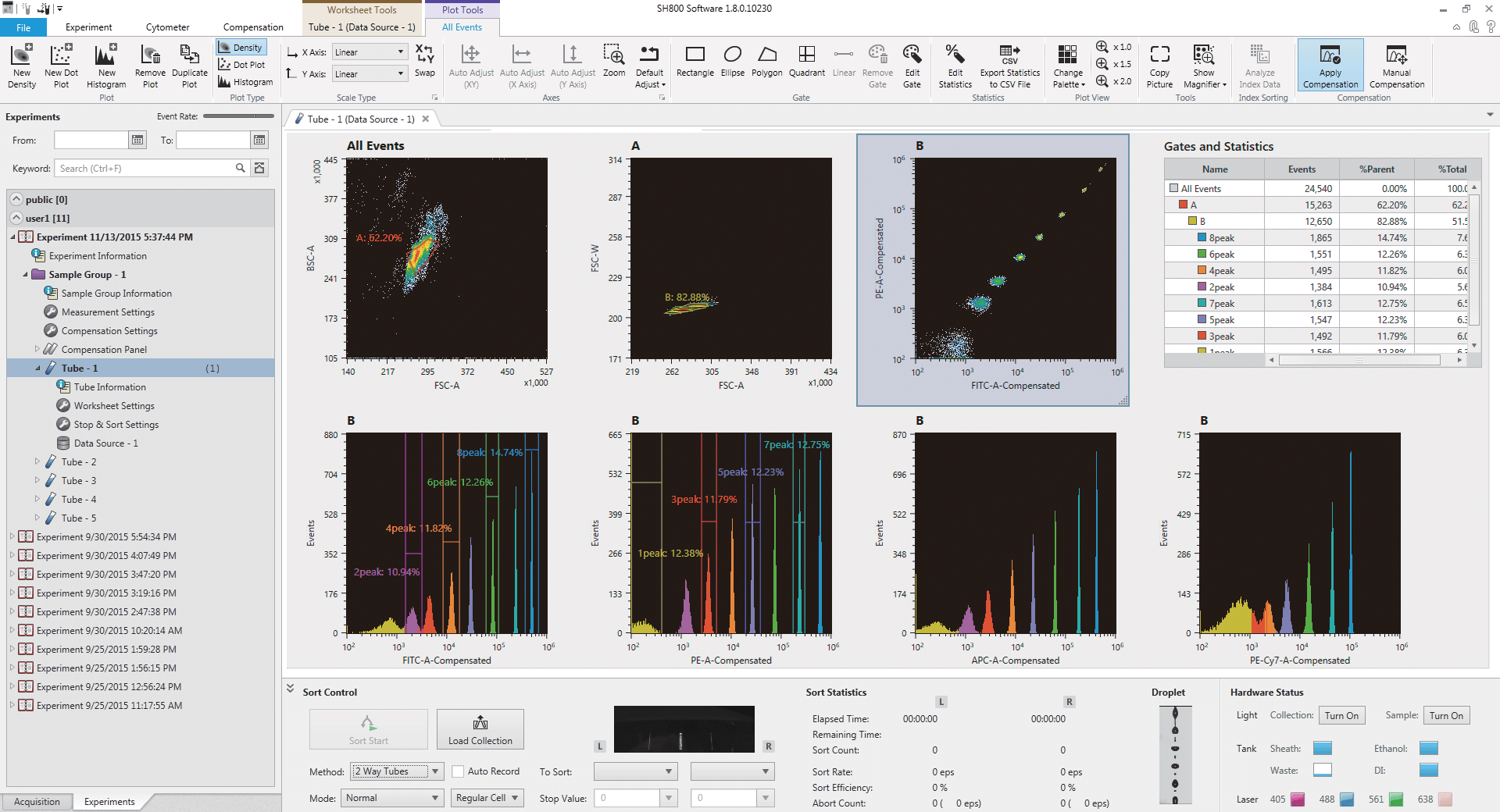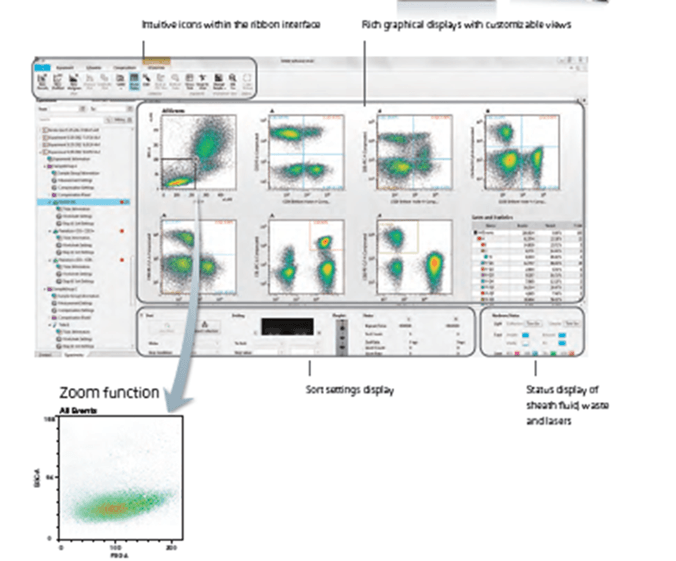Software
Software, sensors, and CoreFinder patented technology provide automation across the workflow from set-up to shutdown to ensure consistency, save time and improve the accuracy of results. The interface is designed with ribbon tabs that logically organize features to make them rapidly accessible. An experiment-centric approach makes the software easy to teach, learn, and use.
Software wizards include step-wise workflows that guide users through start up, multicolor compensation, sorting, and system cleaning. Since the system simplifies even advanced sorting techniques, it can be used by researchers with little sorting experience.
